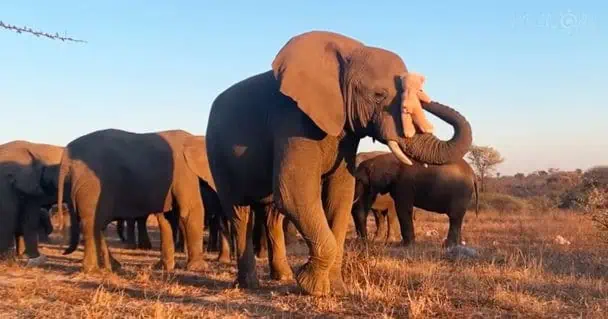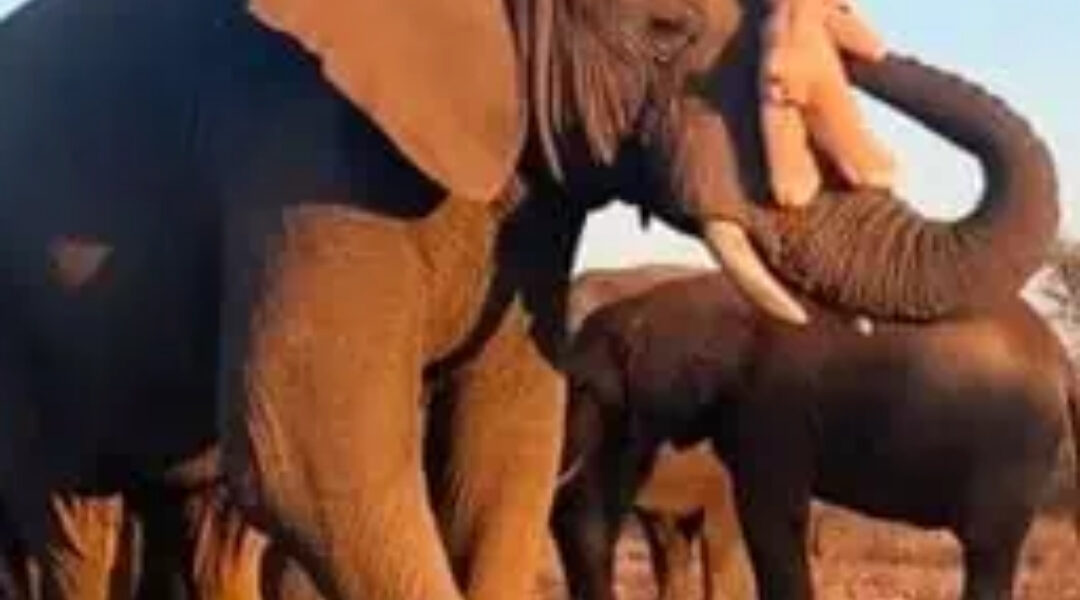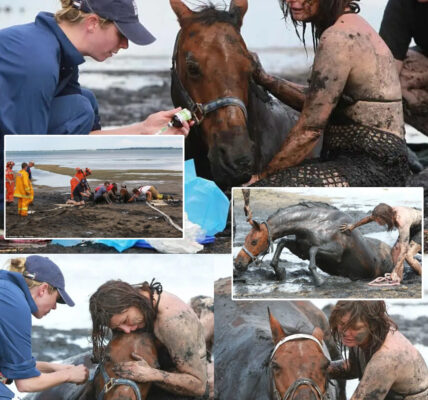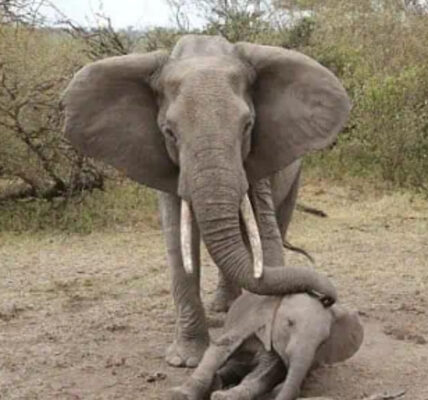Do Elephants Have Personalities? A Student’s Heartfelt Study Reveals the Souls Behind the Giants.

In the heart of South Africa, surrounded by rustling bush and the low, distant calls of wildlife, university student Chloe Caister is quietly rewriting what we know about elephants.
Her work — part of her Master’s research — isn’t about tracking migrations or measuring tusks. It’s about something far more intimate: discovering whether elephants, like humans, have distinct personalities.
To many, elephants already seem soulful — intelligent eyes, complex emotions, deep family bonds. But Chloe is determined to go beyond intuition and capture this scientifically. Her latest video, now touching hearts around the world, shows a herd of elephants encountering something unusual: stuffed teddy bears and toy elephants scattered among the trees.

It looks almost whimsical — toys in the middle of the savanna — but behind it lies serious science. Chloe’s experiment introduces “novelty stimuli” to the herd, observing how each individual reacts to something they’ve never seen before.
Do they charge? Investigate? Ignore it completely? These reactions, recorded carefully through behavioral protocols, help Chloe create personality profiles for each elephant — just like psychologists do with people.
Among the elephants she studies, one stands out: Somopane, known as the peacekeeper of the Jabulani Herd. Normally calm and steady, Somopane surprised everyone that day. When he saw the teddy bears, he reacted with unexpected defensiveness — tossing them aside, as if protecting his family from an unknown threat.
The younger elephants were more cautious, huddling close together, their trunks twitching nervously in the air. But curiosity soon took over. They approached slowly, sniffed the toys, picked them up, and even tried nibbling on them before realizing they weren’t food.

Within minutes, the tension gave way to playfulness — a reminder that elephants, like people, can move from fear to fascination in a heartbeat.
Chloe smiled as she watched through her lens. “What fascinates me most,” she explained, “is how differently they respond. Some are brave, some are hesitant, some are incredibly gentle. These differences tell us so much about who they are.”
Her focus on the Jabulani Herd is especially meaningful. These elephants were rescued — many of them orphans or survivors of traumatic pasts. Their stories, like their personalities, are layered with resilience and complexity.
Chloe believes understanding these traits can help conservationists improve the way rescued elephants are integrated into herds and cared for long-term.
“Every elephant has a story,” she says. “By studying their personalities, we learn how they communicate, how they form friendships, and even how they cope with loss. It’s not just science — it’s empathy in motion.”
Her research has since gone viral, not only for its groundbreaking insights but for the beauty of the video itself — a gentle herd of giants interacting curiously with tiny teddy bears beneath the African sun.
In a world where science often feels distant, Chloe’s project bridges the gap between data and compassion. Her work reminds us that understanding animals begins with recognizing their individuality — their moods, quirks, fears, and joys.
Because perhaps the greatest discovery isn’t that elephants have personalities. It’s that they’ve had them all along — we just needed someone to stop, watch, and listen.




